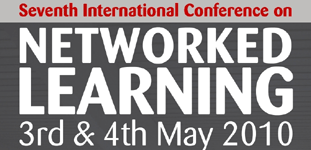

Where does the learning take place? Learning spaces and the situated curriculum within networked learning
Sue Peters
Lancaster University, Lancaster, Lancashire, United Kingdom
Abstract
This paper presents the concept of learning spaces to demonstrate where and how learning takes place within a networked learning programme. The focus of the study is a ten month leadership and development programme, called LEAD, for owner managers of small to medium sized enterprise (SMEs). The programme incorporates different types of learning interventions including experiential sessions, masterclasses, coaching, action learning and business shadowing and exchanges which are brought together with an online virtual learning environment. The paper draws upon data from an ethnographic study including a virtual ethnography of one cohort of 25 delegates on LEAD. The data is supported by interviews and observations from six previous cohorts.
LEAD is based on a social theory of learning and the SMEs learn about management and leadership predominantly through peer-to-peer learning. The paper conceptualises five learning spaces; (1) LEAD, (2) reflective, (3) social, (4) peer-to-peer and (5) future. These spaces are relational and the paper explores what they mean in terms of the SMEs’ learning. Drawing on situated learning theory the paper shows how participants engage in these spaces through Lave and Wenger’s (1991) reading of legitimate peripheral participation . Building on this the concept of the situated curriculum (Gherardi et al., 1998) is used to show how the delegates learn to ‘behave’ in these spaces and how their identity shifts according to which learning space they occupy. Finally, building on Ponti and Hodgson’s (2006) networked learning principles for SME managers the paper will present some learning principles for designing networked learning programmes for SMEs. This paper will be of interest to academics and practitioners alike who have an interest in learning technologies, SMEs and debates surrounding communities of practice. Additionally the paper has relevance to government policy in the area of higher education and knowledge transfer through networked learning and SMEs.
| About NLC | Welcome Messages| Acknowledgwments | Conference Proceedings| Keynote Speakers| Index of Presenting Authors| Contact |